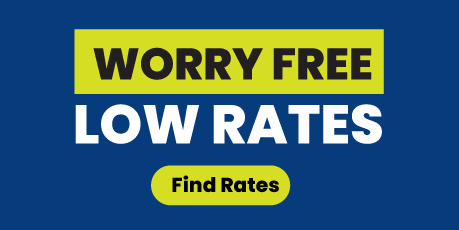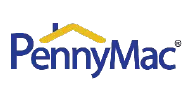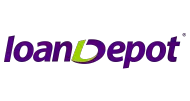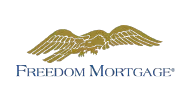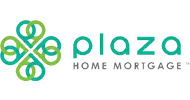Cash-Out-Home-Equity-Conventional

What is a home equity conventional mortgage?
A home equity conventional mortgage is a type of mortgage that allows homeowners to access the equity they have built up in their home and use it as collateral for a loan.
Home Equity is the difference between what your home is worth and what you owe on your mortgage choices. Home equity can increase over the term of your mortgage loan.
We will provide guidelines to assist a borrower's decision making.
A home equity or conventional mortgage loan is often referred to as a cash-out mortgage, because they are withdrawing some of the equity in their home.
Home equity conventional mortgages are different from home equity lines of credit (HELOC) loans, which are often referred to as second mortgages as well.
Conventional Home equity loans typically have fixed interest rates and require borrowers to make regular payments on the loan.
For example, if your home is worth $400,000 and you owe $250,00 on your mortgage, you have $150,000 in home equity.
How Does a Home Equity Conventional Mortgage Loans Work?
The amount of equity a homeowner can borrow against depends on a few factors, including the value of the home and how much is owed on the primary mortgage.
Home equity conventional mortgages are often used to fund home improvements, pay for college tuition, or consolidate high-interest debt.
The homeowner receives a lump sum of money and makes regular payments on the loan. Home equity conventional mortgages typically have lower interest rates than other types of loans because they are secured by the value of the home.
What are the Benefits of a Home Equity Conventional Mortgage?
There are quite a few benefits to choosing a home equity conventional mortgage. We are listing a few below.
Lower Interest Rates:
Home equity conventional mortgages typically have lower interest rates than other types of loans because they are secured by the value of the home.
This can save homeowners a significant amount of money in interest over the life of the loan.
Flexibility:
Home equity conventional mortgages are often used to fund home improvements, pay for college tuition, or consolidate high-interest debt.
Homeowners have the flexibility to use the loan proceeds for whatever they need. If they choose to pay off higher interest debt, this may save them money over time, by lowering their own monthly mortgage payment over output.
Potential Tax Benefits:
Interest paid on a home equity conventional mortgage loans may be
tax deductible, which may provide additional savings for homeowners.
Access to Cash:
Homeowners can access the equity they have built up in their homes and use it as collateral for a loan, providing them with access to cash when they need it. The homeowner can use the cash for ever their need is at the time.
Longer period to pay back loan:
Having access to the home equity may allow them to have longer time to pay off the loan in comparison to conventional loan requirements of other programs.
What are the Risks of a Home Equity Conventional Mortgage Loans?
While there may several benefits to a home equity conventional mortgage, there may also be some risks.
We are providing a list of risks which may occur when choosing a home equity conventional mortgage. It is important for the homeowner to research and become well informed when weighing the risks to the benefits.
Risk of Foreclosure:
If the homeowner is unable to make their monthly payment on a home equity conventional mortgage, they risk foreclosure on their home.
Fees:
Home equity conventional mortgages often come with fees, including application fees, appraisal fees, and closing costs, which can add up quickly. This may total amount may be larger than the benefits in the totality of the loan.
Decreased Equity:
When borrowers withdraw equity from their home, they decrease the remaining free clear equity that is in the home.
If the value of the home decreases, the homeowner may owe more on the home than it is worth.
Long-Term Debt:
Home equity conventional mortgages can extend the life of a homeowner's debt. Especially, if credit card debt is built up again.
What are the Guidelines for a Conventional Home Equity Mortgage?
There are guidelines for conventional home equity loan approval. The financial institutions may vary with the guidelines. We have listed a few below.
1. Equity:
The borrower must have equity in your home. The homeowner must have more than 20% equity in their home to avoid extra fees.
2. Credit Scores:
The homeowner’s credit scores will be a key factor in whether they qualify or not for a either conventional loan or home equity mortgage.
The homeowner’s credit score should be at least 620. Having a higher credit score may result in lower interest rates and better loan terms.
The borrower needs to have a full credit history and good score on their credit report.
3. Documentation:
The borrower will need to provide income documentation, like pay-stubs, tax returns and bank statements. The lender will use the information to verify net tangible benefit to the borrower and verify the new loan is affordable and sustainable.
The mortgage lenders will use this information to determine a homeowner’s debt-to-income ratio (DTI). The (DTI) is used to determine what the percentage of the homeowner’s monthly income goes towards their monthly income.
4. Appraisal:
The mortgage lenders will require an appraisal be performed on the home. An appraisal is an assessment of the value of the home.
This must be performed by a professional appraiser. The appraiser will evaluate the size of the home, the condition of the home and the prices of comparable homes in the area.
5. Closing Costs:
The homeowner will need to pay closing costs when choosing a conventional home equity mortgage. The closing cost may range from 2% to 5% of the loan amount.
These costs may include the cost of the appraisal, fees for title search and loan origination fees.
Home Equity Conventional Loans Conclusion:
To sum up the conventional home equity mortgage, this fixed or adjustable-rate mortgage loan program may be to the advantage of the homeowner who has expenses towards home improvements or the combining of other debt.
There are conventional qualification guidelines that must be followed in order to qualify for this type of loan.
Homeowners must have built up equity in their home, have a good credit score, provide documentation, meet the DTI, have the home appraise in the range of the loan and pay closing costs.
The advantages of a more conventional loan or home equity loan include lower interest rates and the ability to borrow larger amounts of money.
It is important to carefully consider the guidelines, the advantages, and the disadvantages before deciding whether a either conventional loan or home equity loan is best choice for you.
Please read through this information and if you have questions we are here to assist.
Our expert mortgage officers are available to assist with any questions you may have.
Please call us at 1-866-713-9292 or apply online.

